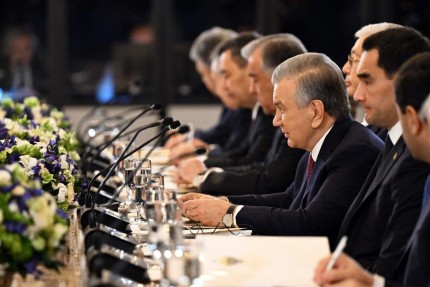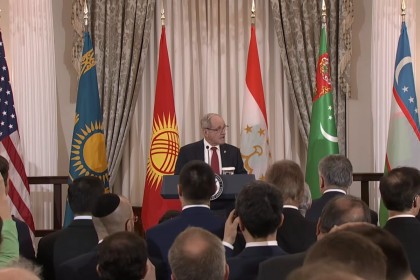On June 5, President Shavkat Mirziyoyev signed the Conflict of Interests Bill into Law. The Bill was approved by the Senate more than a year ago - on June 1, 2023; the Legislative Chamber passed it on October 25, 2022.
The Law focuses on mechanisms for preventing and regulating conflicts of interest related to the activities of government bodies and employees of government organizations.
The Law applies to government agencies and institutions, state unitary enterprises, state trust funds, as well as joint stock companies with a state share in the authorized capital (authorized capital) of 50% or more. In relation to legal entities with a state share of 50% or more, the Law applies only in the field of public procurement.
The document defines the concepts of “conflict of interest”, “related persons”, “personal interest”, “close relatives”. A conflict of interest is defined as a situation in which the personal interest (direct or indirect) of a person influences or may influence the proper performance of his/her official duties and in which a contradiction between personal interests arises (real conflict of interest) or may arise (potential conflict of interest) and rights, legitimate interests of citizens, organizations, society or the state.
Close relatives according to the Law are parents, brothers, sisters, sons, daughters, spouses, as well as parents, brothers, sisters and children of spouses.
Related persons of an employee of a government agency or other organization are his/her close relatives, a legal entity whose shares or shares of the authorized fund (authorized capital) are owned by the employee and (or) his/her close relatives or where they are managers or members of the management body.
The employee must:
- not allow personal interests that lead or may lead to a conflict of interest when performing official duties or official powers;
- in the event of a real conflict of interest, notify his/her immediate supervisor or a special unit before making a decision on documents in his/her records;
- not force employees or other employees under his/her direct subordination to actions (omission) directly or indirectly pursuing his/her personal interests;
- report within one working day about the receipt of job offers from an organization or its structural unit that is under the control of a government agency or another organization where he works, etc.
Related persons, when entering into relations with a government agency or other organization in which an employee works, are obliged to avoid conflicts of interest in personal interests, and also to fill out a declaration of potential conflicts of interest in electronic or written form and not to enter into it knowingly false or unreliable information.
To prevent a conflict of interest, an employee is not entitled to:
- hide information or provide knowingly false or unreliable information when disclosing information about a conflict of interest;
- work part-time in organizations, one of which is subordinated or controlled by another, except for cases provided for by Law;
- be a founder (shareholder, participant) of commercial organizations, with the exception of cases of ownership of up to 10% of freely traded shares of a joint stock company;
- participate as a representative in the consideration of cases concerning him or persons related with him in government agencies or other organizations where he himself works, if, in accordance with the Law, he is not a legal representative;
- participate in the purchase or lease of property of the organization where he works (this clause also included a ban on the participation of persons related with the employee in these auctions, but it was not included in the signed Law).
The Law defines the tasks of authorized bodies in the field of preventing conflicts of interest in the activities of government agencies: the Anti-Corruption Agency (a specially authorized government agency), ethics commissions, personnel departments and internal anti-corruption structures in government organizations.
Government organizations must take the following measures to regulate conflicts of interest:
- post a declaration of potential conflict of interest form and a notice of actual conflict of interest on official websites;
- change or cancel decisions made with a conflict of interest;
- change or cancel transactions made with the assumption of a conflict of interest, or, in accordance with the established procedure, apply to the court with claims to declare such transactions invalid;
- determine internal procedures for preventing conflicts of interest in government agencies or other organizations and take other measures.
The disclosure of information about conflicts of interest by employees of government organizations is established by declaring information about a possible conflict of interest and reporting an actual conflict of interest.
Declarations and notices of conflicts of interest will be analyzed by special departments of government organizations, submitted to ethics commissions and transferred to the Anti-Corruption Agency.
The Anti-Corruption Agency is entrusted with the task of drawing up administrative protocols on violations of legislation on the prevention of conflicts of interest.
If decisions and agreements entered into with the assumption of a conflict of interest are recognized by the courts as invalid, then the profit received from such agreements will be transferred to state income. Corresponding amendments are being made to the Civil Code.
Liability for breach of the Law
Due to the passing of the Law on the prevention of conflicts of interest, amendments to the legislation were approved, which determine the legal consequences of violating the requirements for conflicts of interest.
Failure by employees of government agencies and organizations to notify in the manner prescribed by Law of the existence of a real conflict of interest will be punishable by a fine of 3 to 5 basic calculation units, repeated failure to notify - from 5 to 10 BCU.
Failure by an official to take measures to resolve a conflict of interest in cases that become known to him entails a fine of 5 to 10 BCU, repeated - from 10 to 15 BCU.
If violations are recorded in the field of public procurement, the fine will be from 20 to 30 BCU.
Additionally
According to the Senate Law, a Bill approved by the upper house of parliament shall be sent to the president within 10 days for signing and promulgation. The President must sign the Law and promulgate it within 60 days. The document was under consideration by the Presidential Administration for more than a year.
The legislation does not indicate whether changes can be made to a Law already passed by parliament. The President has the right to return the Law with his/her objections to the Oliy Majlis for re-discussion and voting.
Gazeta.uz, having compared the versions of the Law approved by the Senate and signed by the president, noticed some changes.
In particular, according to Article 15, an employee is required to fill out and submit a notification of a real conflict of interest to his/her immediate supervisor or special unit within the working day from the moment he became aware of a real conflict of interest in cases where close relatives with direct subordination are hired or persons associated with him are involved in his/her work.
The final version was supplemented with an exception for cases of hiring for a position included in the political group of positions in the state civil service, as well as if “his/her work on the basis of a civil contract” involves persons related to him.
State civil service positions consist of political, managerial and support groups of positions. While, the categories of positions belonging to these groups are determined in the State Register of State Civil Service Positions.
This register shall be approved by the president and updated by a specially authorized body.
Director of the Anti-Corruption Agency Akmal Burkhanov stated that the Agency identifies thousands of cases of conflicts of interest in the public service, but due to the lack of a legal framework, eliminating such situations was problematic.
The Law will take effect after six months - from December 6, 2024.














